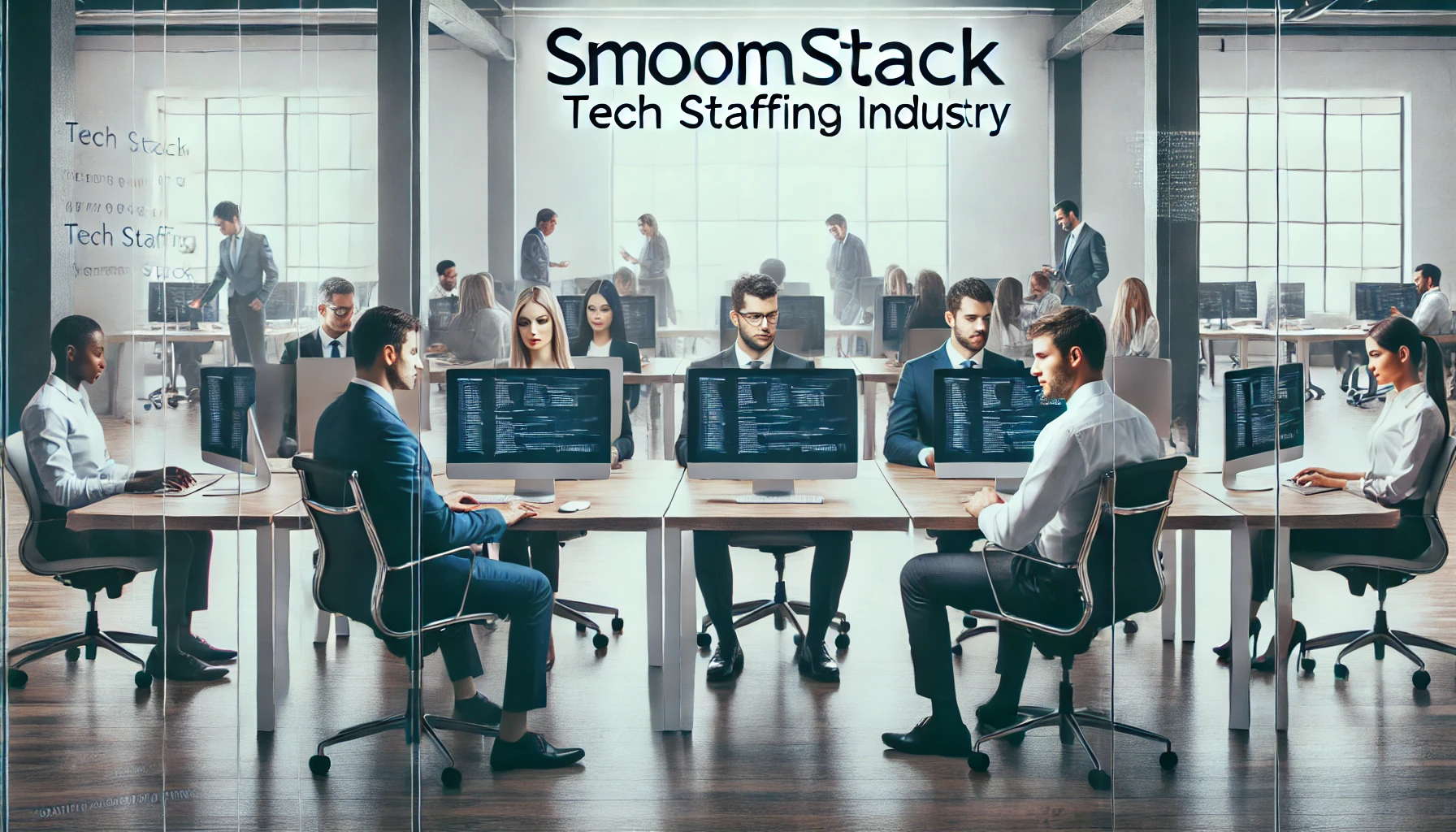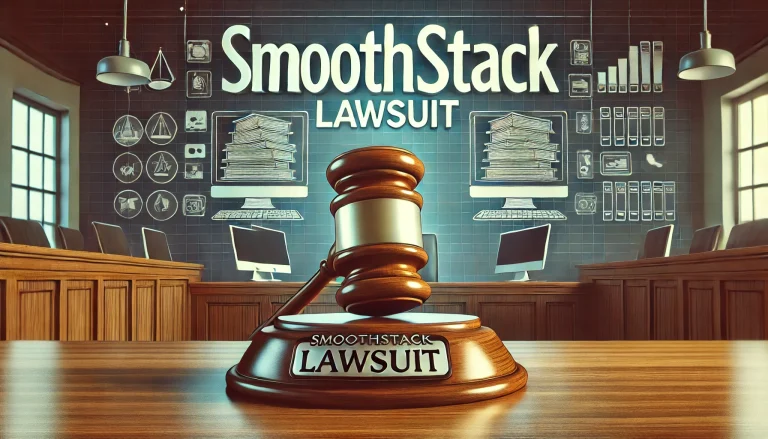The Smoothstack lawsuit, involving the IT staffing and training company, has become a focal point of significant legal disputes over its treatment of employees. Allegations of exploitative contracts, unpaid labor, and violations of worker rights have sparked class-action lawsuits and regulatory investigations. These cases have highlighted the practices of tech staffing firms and their impact on employees.
Key Allegations Against Smoothstack
What Are TRAPs?
Training Repayment Agreement Provisions (TRAPs) are a central focus of the lawsuits. Smoothstack requires employees to sign these agreements, which mandate a financial penalty—sometimes exceeding $20,000—if they leave the company before completing 4,000 billable hours of work. This typically amounts to two years of full-time employment. Critics argue that these provisions create a system that traps workers in unfavorable conditions by making it financially prohibitive to leave.
Unpaid and Low-Paid Labor
Another major allegation involves Smoothstack’s approach to training and compensation:
- Unpaid Training Periods: Trainees were reportedly required to work without pay during their initial training.
- Minimum Wage Payments: Once employed, workers were allegedly paid only minimum wage, regardless of the high-demand technical work they performed.
- Overtime Violations: The company is also accused of not paying employees for overtime hours, even though many worked long hours to meet client demands.
Restriction of Employee Rights
Smoothstack allegedly restricted workers from discussing their wages or working conditions. This practice creates a culture of fear, making it harder for employees to advocate for themselves or report unfair treatment. According to the lawsuits, these actions violate basic labor laws and workers’ rights.
Smoothstack Lawsuit: Understanding the Key Allegations and Legal Implications
The Smoothstack lawsuit centers around serious allegations against the IT staffing and training company, particularly regarding its treatment of employees. At the heart of the case are Training Repayment Agreement Provisions (TRAPs), which are contracts requiring employees to repay significant sums if they leave the company before completing a specified amount of billable work. These agreements are seen as exploitative by many, as they often lock workers into long-term employment, even under unfavorable conditions.
Additionally, the lawsuit claims that Smoothstack engaged in wage violations by requiring employees to work unpaid during training and paying them only minimum wage afterward, despite the demanding nature of their jobs. The company is also accused of suppressing workers’ rights by limiting their ability to discuss wages or working conditions, creating an environment where employees feel they cannot speak up about unfair treatment.
The legal action has sparked significant attention from regulatory bodies, including the U.S. Department of Labor, which is investigating whether Smoothstack’s practices violate federal labor laws. The outcome of this case could have broad implications, potentially prompting changes in how tech staffing companies handle contracts, compensation, and worker rights in the future.
Timeline of Events
- April 2023: The first class-action lawsuit is filed against Smoothstack. This lawsuit highlights issues with TRAPs, unpaid training, and wage violations.
- July 2024: The U.S. Department of Labor (DOL) files its own lawsuit, accusing Smoothstack of violating the Fair Labor Standards Act (FLSA).
- Ongoing in 2025: Legal proceedings continue, and regulatory bodies are closely monitoring the case.
Legal Arguments
Claims From the Plaintiffs
The plaintiffs argue that Smoothstack’s practices are exploitative and illegal. They claim:
- TRAPs unfairly punish employees for leaving, effectively locking them into long-term employment under unfavorable conditions.
- The company violated labor laws by failing to pay employees fairly for their work, including during training periods.
- Restrictions on discussing wages and conditions further suppressed employee rights and violated federal labor protections.
Smoothstack’s Defense
While Smoothstack has not publicly addressed all allegations in detail, it is likely to defend TRAPs as a means of protecting its investment in employee training. The company may also challenge specific claims of wage violations, arguing compliance with labor standards.
Regulatory Scrutiny
The lawsuits have triggered increased scrutiny from regulatory authorities:
- The Department of Labor (DOL) has accused Smoothstack of violating federal labor laws, including the FLSA.
- The Federal Trade Commission (FTC) is reportedly examining the use of TRAPs in the industry to determine if such agreements exploit workers.
These investigations could lead to stricter regulations for tech staffing firms and more robust protections for employees.
Impacts of the Lawsuits
On Smoothstack
The lawsuits pose significant risks for Smoothstack. If the company is found liable, it could face:
- Substantial financial penalties.
- A damaged reputation that may deter future employees and clients.
- Pressure to revise its contracts and compensation practices.
On Employees
The case has brought attention to the challenges faced by workers in the tech industry, especially those early in their careers. It highlights the importance of understanding contracts and advocating for fair treatment.
On the Tech Industry
The Smoothstack lawsuits could set a precedent for how similar cases are handled in the future. If successful, the plaintiffs’ arguments may prompt companies to rethink their use of TRAPs and ensure compliance with labor laws.
Public Reactions
The lawsuits have sparked varied reactions:
- Former Employees: Many former workers have shared their experiences, supporting claims of unfair treatment and expressing relief that the issues are being addressed.
- Industry Experts: Legal and labor experts see this case as a critical moment for addressing exploitative practices in the tech staffing industry.
- The Public and Media: The case has gained significant attention, with widespread calls for better protections for employees.
Current Status of the Lawsuits
As of January 2025, the lawsuits against Smoothstack are ongoing. While no final decisions have been made, the case continues to reveal details about the company’s practices and their impact on workers. Both Smoothstack and the plaintiffs are preparing for further legal proceedings, and the outcomes could have far-reaching consequences.
Implications for the Future
The Smoothstack lawsuits highlight critical issues in the tech industry and beyond:
- For Employees: This case serves as a reminder to carefully review employment contracts and advocate for fair treatment.
- For Employers: Companies may face increased scrutiny and pressure to adopt fairer practices.
- For the Industry: The case could lead to broader regulatory changes, ensuring better protections for employees in the future.
Conclusion
The Smoothstack lawsuits have brought much-needed attention to labor practices in the tech staffing industry. Allegations of exploitative contracts, unpaid labor, and suppression of worker rights underscore the importance of ethical and lawful employment practices. As these cases unfold, their outcomes could shape the future of work for thousands of tech professionals, setting a precedent for fairness and accountability in the workplace.
FAQs
What is the Smoothstack lawsuit about?
The lawsuit centers on allegations of exploitative contracts, unpaid labor, and violations of worker rights under labor laws.
What are Training Repayment Agreement Provisions (TRAPs)?
TRAPs are contracts requiring employees to repay up to $20,000 if they leave before completing 4,000 billable hours.
Why is the Department of Labor involved?
The DOL alleges Smoothstack violated the Fair Labor Standards Act by failing to pay fair wages and suppressing employee rights.
How could the lawsuit impact Smoothstack?
If Smoothstack loses, it could face financial penalties, reputational damage, and pressure to reform its employment practices.
What does this mean for the tech industry?
The case could lead to stricter regulations on employee contracts and better protections for tech workers.
Article Recommendations
Wendys Lawsuit Michigan: The Story Behind Aspen Lamfers’ Fight for Justice After Severe Illness
Monday Shampoo Lawsuit: How Social Media is Amplifying Consumer Complaints
Anaheim Mesothelioma Legal Question: Exploring Legal Challenges and Solutions for Asbestos Victims
Alaska Mesothelioma Legal Question: Understanding the Statute of Limitations and Filing Deadlines





